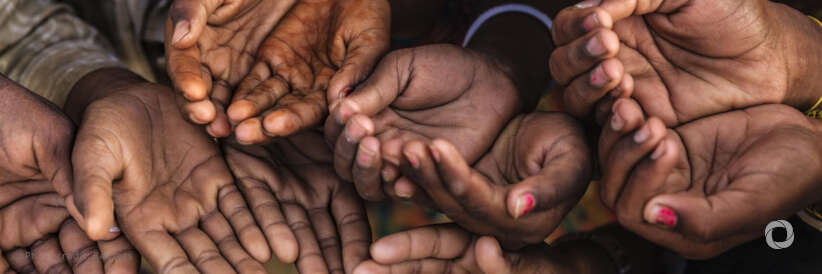Faced with the worst hunger crisis in a generation, the G7 has simply failed to take the action that is needed. Many millions will face terrible hunger and starvation as a result. Instead of doing what is needed, the G7 is leaving millions to starve and cooking the planet.
The G7 say themselves that 323 million people are on the brink of starvation because of the current crisis, a new record high. Nearly a billion people (950 million) are projected to be hungry in 2022. G7 needs at least $28.5 billion more to finance food and agriculture investments to end hunger and fill the huge gap in UN humanitarian appeals. The $4.5 billion announced is a fraction of what is needed. The G7 could have done so much more here in Germany to end the food crisis and prevent hunger and starvation worldwide.
The G7 weakening of their commitment to stop public money from subsidizing planet-killing fossil fuels is appalling and makes climate breakdown ever more real. This is further exacerbated by their lack of progress in delivering promised finance to support climate action in developing countries.
The G7 refusal to heed the call of last year’s UN climate summit to strengthen their weak targets to cut emissions sends out a terrible signal to the rest of the World, especially to vulnerable communities already suffering the impacts of the worsening climate crisis.
Food and hunger
Pledging more money is just part of what the G7 could do to end hunger. They could ban biofuels. They could cancel the debts of poor nations. They could tax the excess profits of food and energy corporations. Most importantly they could have tackled the economic inequality and climate breakdown that is driving this hunger. They failed to do any of this, despite having the power to do so.
For every dollar in aid given, poor countries have to pay back $2 dollars to their creditors, often banks in New York or London making huge profits. The G7 should have canceled those debts to enable countries to spend money instead on feeding their people.
The G7 was held in the same location in Germany in 2015, where a commitment was made to lift 500 million people out of hunger. Seven years later there are as many as 335 million more hungry people in the world. G7 urgently needs new approaches to addressing hunger that start with addressing underlying drivers such as economic inequality and climate breakdown. Current efforts are woefully inadequate.
Corporate profits have soared during COVID-19 and the number of billionaires has increased more in 24 months than it did in 23 years. This food crisis is big business.
The G7 had the opportunity to tax the big winners from the crises. The energy and food corporations are making huge profits, creating 62 new food billionaires. They could have agreed to coordinate windfall taxes to fight this crisis and missed a huge opportunity to do so.
”What we need to see is a clear action plan with new funding not just from traditional donors, but from companies and others that have profited from the current spike in energy and food prices to address the underlying causes of global food insecurity and hunger. It should be clear that the recently launched Global Alliance for Food Security (GAFS) will complement, rather than undermine existing institutions responsible for global coordination of food and agriculture, including the Committee on World Food Security which plays a key role in policy setting. There is a need to clarify what concrete measures will be proposed under this initiative, and ensure sufficient funding is attached to it to ensure it can deliver”, Max Lawson, Head of Inequality Policy at Oxfam.
In addition, the G7 needs to fund the $46 billion global humanitarian appeal which, despite increasing five-fold in the last decade, is only 20% funded. They should agree to fill this funding gap of $37 billion immediately.
Climate
The G7 commitments to largely decarbonize their power sectors by 2035 and their road sector by 2030 point in the right direction but should have been stronger, and a much-needed 2030 coal phase-out date is missing.
G7 welcomes the initial steps towards Just Transition Energy Partnerships with Indonesia, India, Senegal, and Vietnam as such partnerships can create predictability and reliability. Yet, those partnerships need to be backed up by financial commitments to make them effective, and the design and implementation of such partnerships must involve local communities and vulnerable populations from the beginning, based on truly participatory, inclusive, and gender-just approaches.
COVID-19
Despite the growing danger of new COVID-19 variants and the failure to deliver even half of the vaccines they promised a year ago at the Carbis Bay Summit in the UK a year ago, the G7 continues to defend the monopolies and intellectual property of their pharmaceutical corporations over supporting developing countries to make their own, generic vaccines. Only 18% of the poorest countries are fully vaccinated.
“What a difference a year makes. The G7 want us to think COVID-19 is over, and the ongoing global health crisis doesn’t exist. Tell that to the many millions yet to have a single vaccine, and the many still dying from this cruel disease,” Max Lawson, Head of Inequality Policy at Oxfam.

